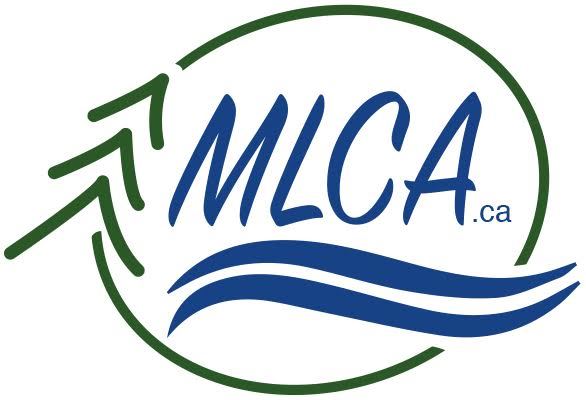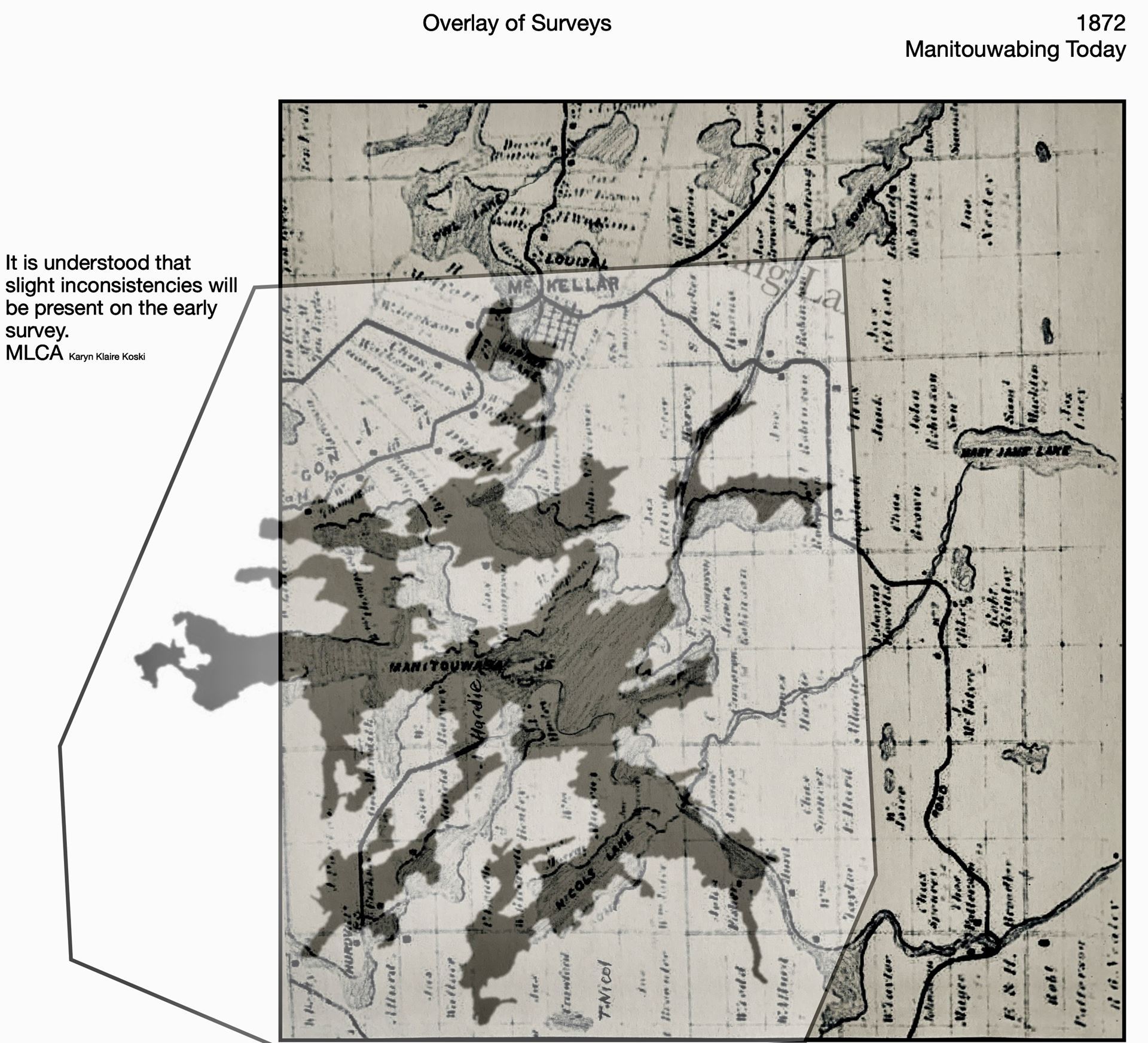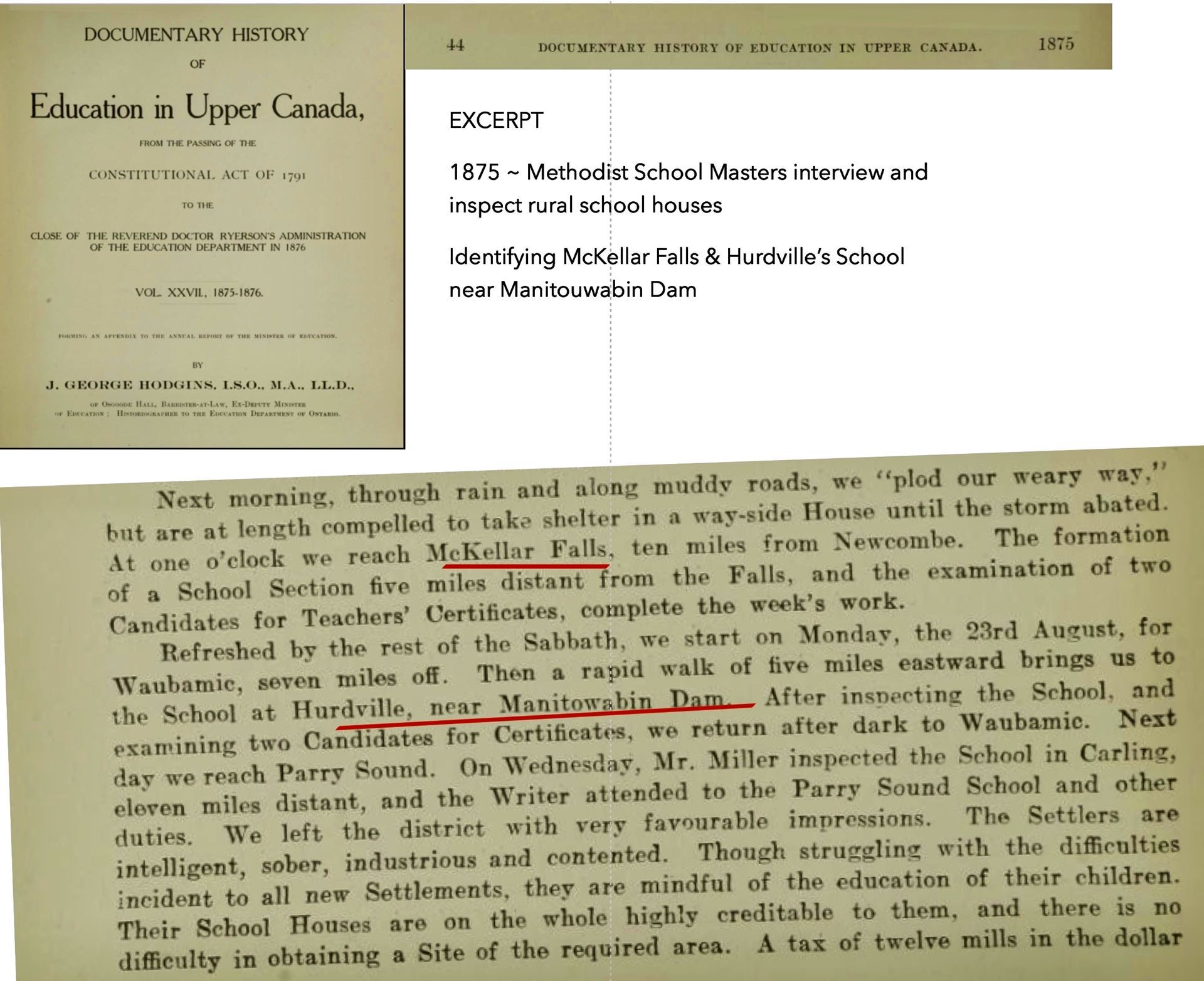.... |
History
McKellar's Logging Dams, Early Settlers & Aboriginals It was the logging industry that changed the geographical landscape of McKellar Township. Before 1872, what we know today as Manitouwabing Lake, previously consisted of Minerva, Manitowaba and Nicol’s Lakes with many creeks, rivers and wetlands in between. McKellar Historical Committee President & curator of the Evelyn Watkins Moore Heritage Room, Vivian Moore recalls how her Great, Great Grandfather Frank Ferris complained to the Commissioner of Crown Lands in 1877, when his Lorimer Lake area property was flooded. According to John Mcfee’s book, Up the Great North Road, Ferris went after the Armstrong Brother’s Lumbering company, of whom, McKellar was originally named. Although he got some compensation, he sabotaged the offending dam, was jailed briefly and eventually in contempt, moved away. Such was the gamble with Free Land Grants. The Manitowabin Dam at Hurdville altered the watershed most significantly and is what created the lake we know today. Some lost land, while others gained waterfronts. Nicol’s lake was named as such for Thomas Nicol who was the first in the immediate vicinity to register a land claim in 1870. After the flooding, there are no records that show he, or his family stayed. A Methodist School Master's journal, with a date of 1875, documents that the Manitowabin Dam existed at that point.
McKellar land owner Dan Ball’s family linage is represented in the book, Memories of McKellar, written by Evelyn Watkins Moore. All eight of his grandparents descended from McKellar pioneering families. He has known all his life, that Tait’s Island, was once a point of land that belonged to the Thompson Family and that locals used to identify the open expanse of water east of that point, before the Narrows, as the North Lake. Thompson Cemetery on Hwy 124, Dan confirms, is the legacy of this family. Minerva Lake in his opinion, was named for a family member of one of the earliest settlers who would have arrived in the late 1860’s. Patterson, Armstrong, or even widower Peter Leach, he speculated. As a young boy in the 1950’s, Dan recalls how his Grandfather showed him which small island near Little Tait’s Island, (which they called Birch Island) was where Manitowaba’s name sake was said to have been originally buried. Dan’s Mother (101 at the time of this report) had told him stories of the indigenous people of the area. One summertime settlement they frequented was in the vicinity of a hilltop, just off where Centre Road is today, before the pasturelands of Middle River Farm. There isn’t much surviving information about the First Nation’s people who originally inhabited the area. Those who converted to christianity were relocated to the reserve on Parry Island. Those like Old Man Manitowaba, who rejected colonization were considered infidels and written off by Church & State. An 1866 French Language, Baptism record for John Manitowaba (Jr) registers that his father, also named John - was "defunt", a common French word for deceased. Because of this record, it is possible that if an Old Man Manitouwaba had died, he would have been buried before the great flooding. There are archived materials that mention early Manitowaba Men, who were grouped with those who aided the British during the War of 1812, but at present moment, an exact record of where these men settled, has yet to be determined. To honour the Anishinabek People of the area, McKellar Township unveiled a street sign in dedication to Manitouwaba in 2017. Manitouwaba Street is the access road into Minerva Park. Great great descendants of John Manitowaba, are very aware of the cultural genocide their ancestors endured and how generations suffered that trauma. In conversation, there is hope and optimism, an obvious pride in tradition, reverent connection to the spirituality of earth and a very obvious sense of healing. Anytime the word “Manitou” is mentioned, it is always in reference to Great Spirit. Manito wab eh. (long a) researched & written by Karyn Klaire Koski for MLCA Archived Historical StoriesAs told by local cottagers & local people https://mlca.ca/sys/website/?pageId=18297 (Early Cottagers) https://mlca.ca/sys/website/?pageId=18299 (Birch Island) For More Archived Information Please visit McKellar Township's Historical Society |




